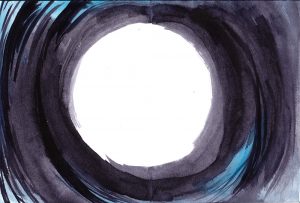Back when I started working in manufacturing, I had a boss who would ask our team:
“How do you catch a counterfeit?”
The answer?
“Study the real.”
There are infinite variables, infinite ways for a person to create a counterfeit. If you try to become an “expert” of the counterfeits, you’re wasting your time. You could know thousands of variations, and all it takes is one person making one exception that you’ve never seen, and you’ll miss it.
But if you study the real, you can focus your expertise on what’s important. Then the one time that something looks different, you’ll notice immediately.
The concept of opposites
On the surface, this story seems to be about how to tell apart the real from the fake, which it is.
But go one level deeper, and it’s a lesson on how to change focus.
It’s being both aware of yourself and of your context.
How can we do the same things differently? How can focusing on the opposite of what we’re after get us to what we want?
Diversity vs Similarity
The motive of our social campaigns for diversity is inherently good. But we have so many campaigns, and people’s attention is already split across a world checkered with ads, categories, and options.
What would happen if in our conversations about diversity, we focused on what makes us all the same?
We already know we’re different. That’s why it’s hard to find common ground.
But if we focus on the common ground, could we indirectly teach people to notice and appreciate the differences in people on their own, by making them stand out on a canvas of shared human qualities? Could we change our words first to unite people, then to think for themselves?
That isn’t to say that we shouldn’t talk about diversity. But maybe part of changing the game is knowing when to talk about same versus different. Both are important. Both play a role. And as the saying goes, while knowledge is knowing what to say, wisdom is knowing when to say it.
I vs We
There is no “I” in team…but guess what? There isn’t a “we” either.
The other problem with word plays is it only takes a little cleverness to get another player back.
Case and point: there is no “I” in team, but there is an “I” in leadership, ownership, and three of them in responsibility.
So there.
Moving on, should we focus on the individual or the team?
Self awareness or situational awareness?
Hint: It depends, and it’s not an either-or answer.
To stop or to continue…
Where else does the metaphor of the “counterfeit” apply?
How else can a focus on the opposite lead us to what we’re truly after?
What does it tell us about how to solve the problems and pursue the opportunities in front of us?
It isn’t about knowing the difference between what’s real and what isn’t. It’s about knowing which one is important and when. It’s about knowing how to pay attention.
It is helpful to remind ourselves that in a world where we’re taught that growth means good, full means satisfied, and 100% means perfection, life is forever an act of counterbalance.
It is helpful to know our own tendencies, and understand when to go with and counteract them.




